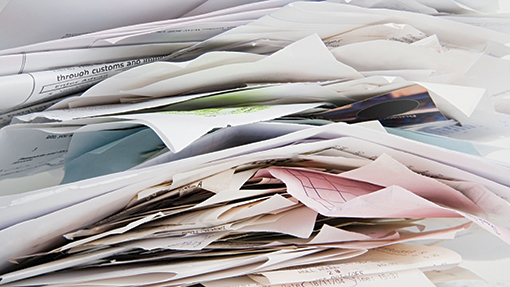How to prepare your farm for a VAT inspection

Barring the unannounced dawn raid or the unexpected early morning knock on the farmhouse door for which no planning is possible, there are a number of steps that can be taken to ease VAT inspector visits. David McGeachy, VAT specialist at chartered accountants Saffery Champness, offers his advice.
1 Make sure you book a visit date that suits you and that gives you enough time to prepare. The initial letter from HMRC will outline a list of information that needs to be prepared. Contact the inspecting officer to ask what exactly they are looking for.
 David McGeachy
David McGeachyVAT specialist Saffery Champness
2 First impressions matter, so have your VAT and other tax files and accounts properly organised. Lost, torn and dog-eared paperwork will do you no favours.
3 At the start of the visit explain exactly what your business does. This will assist the VAT inspector in determining whether or not there is a case to follow up.
4 Where you don’t have an answer to a question say, that you will find out the answer and respond as soon as possible. This will give you the opportunity to discuss with an adviser should you need to do so.
5 Have copies of VAT invoices available and in order – this is vital for large expenditure items. Where you don’t have a VAT invoice, ask the relevant supplier to issue you with one. Have all VAT receipts for expenses on which the business has recovered VAT. It is not recoverable on business entertaining.
Consequences of getting your VAT wrong
If you have under-declared VAT, HMRC might look to apply a penalty. Normally, this could be up to 30% of the VAT under-declared.
Penalties can be mitigated, but this will depend on a range of factors such as the extent of your co-operation, quality of the information provided and whether it was you or HMRC that identified the error. Penalties are likely to be significantly reduced if you tell HMRC about the error before they find it.
It is possible for a penalty to be suspended if there are no further errors discovered during the suspension period.
6 VAT inspectors are hot on the treatment of cars and other vehicles. Normally VAT on the purchase of cars is not recoverable, but VAT on lease charges of cars is 50% recoverable. If you are unsure, or have several different types of vehicles – cars, vans, lorries, pick-ups – check with an adviser.
7 Where you are partially exempt for VAT, you may be required to show workings of VAT calculations. Again, it may be worth getting professional advice.
8 If your business sells or rents property, have a separate list of properties and the VAT treatments of them – likewise with options to tax on assets including properties and land.
9 Where the inspecting officer indicates that something potentially remiss has been found, ask for full details and take note of the relevant invoices and paperwork. They may not be correct – but for you to brief your professional adviser you should know exactly what suspicion has been aroused.
10 Above all, be welcoming. You may not like a VAT inspector being on your property and your affairs being under scrutiny, but the more your co-operate, the sooner the process is likely to be over.
Common mistakes businesses make during a VAT inspection
- Determining the VAT treatment solely based on what you have always done before is perhaps the most common error. VAT law and practice changes and it is important to keep up to date.
- Failure to restrict (or apportion) VAT on expenditure for non-business or private purposes. It is common for there to be an element of private use of an asset such as a property and normally private use means not all VAT is recoverable.
- Errors in attributing VAT in partial exemption calculations. For example, if you have repaired a property that is let to a tenant on an exempt rent, the VAT incurred on the repair should not be included as an overhead cost in the partial exemption VAT recovery calculation.
- Lost VAT invoices or invoices addressed to the wrong person or entity. Invoices need to be addressed to the VAT-registered claimant.
- Confusion over which properties have been opted to tax and when VAT needs to be charged. A file of options to tax made is a good record-keeping tip.
- It is just as possible for businesses to under-recover VAT as to recover more than is due. If you believe you have recovered too little, ask the inspector during the inspection or speak to an adviser.
